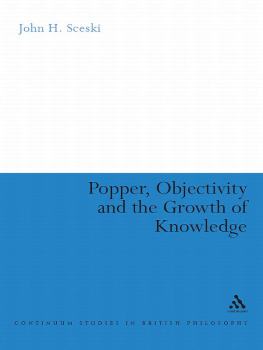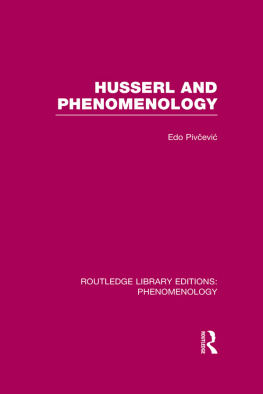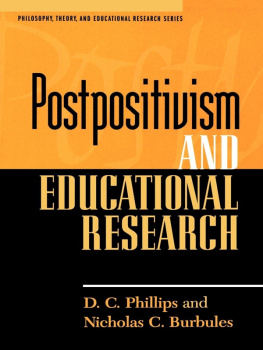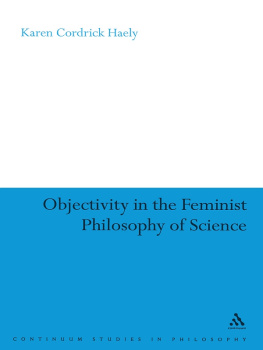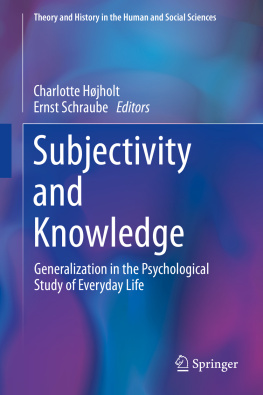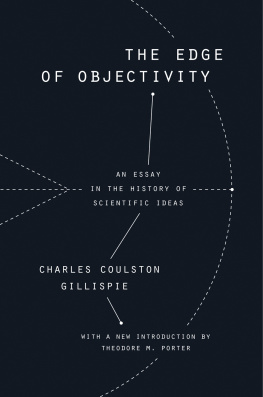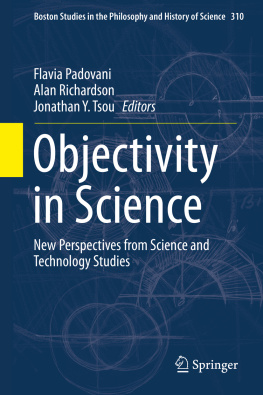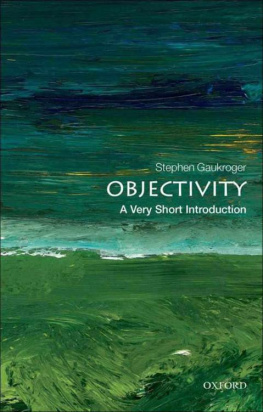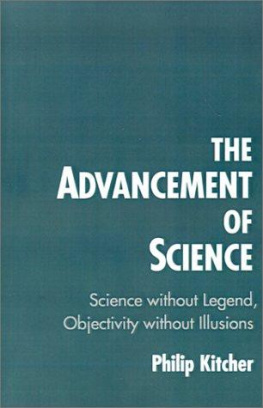Objectivity and
Subjectivity
in Social Research
SAGE has been part of the global academic community since 1965, supporting high quality research and learning that transforms society and our understanding of individuals, groups, and cultures. SAGE is the independent, innovative, natural home for authors, editors and societies who share our commitment and passion for the social sciences. Find out more at: www.sagepublications.com
| Connect with other researchers and discuss your research interests |
| Keep up with announcements in the field, for example calls for papers and jobs |
| Discover and review resources |
| Engage with featured content such as key articles, podcasts and videos |
| Find out about relevant conferences and events |
Objectivity and
Subjectivity
in Social Research
Gayle Letherby
John Scott and
Malcolm Williams
SAGE Publications Ltd
1 Olivers Yard
55 City Road
London EC1Y 1SP
SAGE Publications Inc.
2455 Teller Road
Thousand Oaks, California 91320
SAGE Publications India Pvt Ltd
B 1/I 1 Mohan Cooperative Industrial Area
Mathura Road
New Delhi 110 044
SAGE Publications Asia-Pacific Pte Ltd
3 Church Street
#1004 Samsung Hub
Singapore 049483
Editor: Katie Metzler
Assistant editor : Anna Horvai
Production editor: Ian Antcliff
Copyeditor: Sarah Bury
Proofreader: Kate Harrison
Marketing manager: Ben Griffin-Sherwood
Cover design: Jennifer Crisp
Typeset by: C&M Digitals (P) Ltd, Chennai, India
Printed: MPG Books Group, Bodmin, Cornwall
Gayle Letherby, John Scott and Malcolm Williams 2013
First published 2013
Apart from any fair dealing for the purposes of research or private study, or criticism or review, as permitted under the Copyright, Designs and Patents Act, 1988, this publication may be reproduced, stored or transmitted in any form, or by any means, only with the prior permission in writing of the publishers, or in the case of reprographic reproduction, in accordance with the terms of licences issued by the Copyright Licensing Agency. Enquiries concerning reproduction outside those terms should be sent to the publishers.
Library of Congress Control Number: 2012931554
British Library Cataloguing in Publication data
A catalogue record for this book is available from the British Library
ISBN 978-0-85702-840-2
ISBN 978-0-85702-841-9 (pbk)
Contents
About the Authors
Gayle Letherby, BA (Hons), PhD, AcSS is Professor of Sociology and Director of the Institute of Health and Community at Plymouth University. She researches and writes in a variety of areas including reproductive and non/parental identity; working and learning in higher education; crime and deviance and travel mobilities. She is also interested in all things methodological, particularly feminist approaches, auto/biography and wider concerns relating to the politics of the research process and product. Publications focusing on issues of method, methodology and epistemology include Feminist Research in Theory and Practice (Open University, 2003); Letherby, G. and Bywaters, P. (eds) Extending Social Research: Application, Implementation, Presentation (Open University, 2007); Feminist Methodology in Williams M. and Vogt P. (eds) The Sage Handbook of Methodological Innovation (Sage, 2011); and various contributions to Jupp, V. (ed) The Sage Dictionary of Social Research (Sage, 2006).
John Scott is Professor of Sociology and Pro Vice-Chancellor for Research at Plymouth University. He was previously Professor of Sociology at Essex University and Leicester University. He is a Fellow of the British Academy, an Academician of the Academy of Learned Societies in the Social Sciences, and a Fellow of the Royal Society of Arts. An active member of the British Sociological Association, he has held the posts of Secretary, Treasurer, Chairperson, and President. His most recent publications are Conceptualising the Social World (Cambridge University Press, 2011), The Sage Handbook of Social Network Analysis (edited with Peter Carrington, Sage, 2011), and Sociology (with James Fulcher, Oxford University Press, 2011). His current work on the history of British sociology will appear as Envisioning Sociology. Victor Branford, Patrick Geddes, and the Quest for Social Reconstruction (with Ray Bromley, SUNY Press, 2013).
Malcolm Williams is a Professor and Director of the School of Social Sciences at Cardiff University. Though primarily a sociologist, his work draws on social statistics and philosophy of science. His primary research interests are methodological, particularly probability, causality and the counting of rare and elusive populations. He was the first researcher to use the method of mark-recapture to measure homeless populations. His empirical research has included work on household formation and dissolution, housing need and more recently issues of pedagogy in the teaching of quantitative methods. He has published/edited nine books/collections. His most recent are Teaching Quantitative Methods (with Geoff Payne, Sage, 2011) and The Sage Handbook of Innovation in Social Research Methods (with W. Paul Vogt, Sage, 2011).
ONE
Introduction
The widely accepted view of science is that it is the means of securing truth in knowledge about the world. It is for this reason that many sociologists have taken the view that sociology, along with other social sciences, should follow the scientific method: it should be a science of society. This view has been challenged by those who see society as closer to the arts and humanities than to the sciences: they argue that sociology is a humanistic discipline in which the subjectivity of the individual sociologist is central to the knowledge produced. The most radical variants of this argument see social investigation as totally relativistic.
The implications of this go beyond sociology, and the view of science as an objective basis for truth has been challenged. Those working in social studies of science have developed a view often characterised as social constructionism that appears to challenge the objectivity of science and its claims to produce true knowledge. Scientific knowledge, they argue, is a product of the constructive practices of scientists and cannot be seen as an unproblematic reflection of a world external to science.


